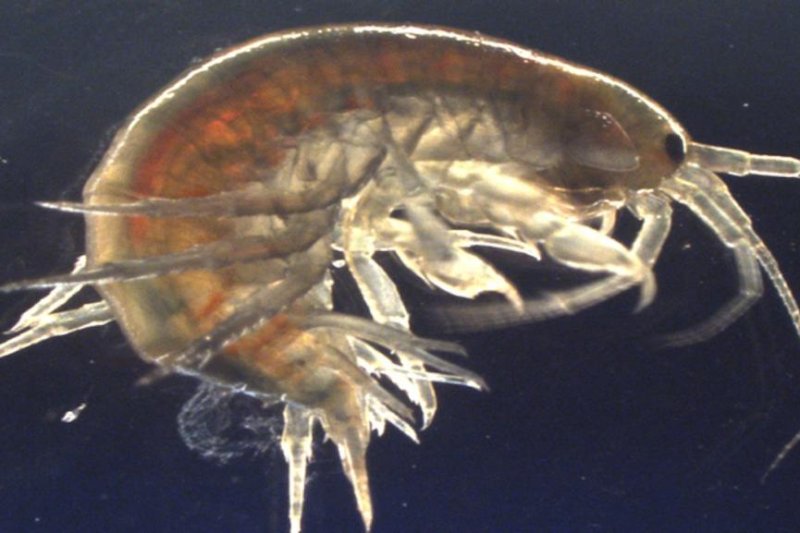The freshwater shrimp Gammarus pulex
is one sample from 15 sites that researchers at Kings College London
report tested positive for illicit drugs and pharmaceuticals. In their
tests, cocaine was found in 100 percent of samples tested. Photo by Kings College London
May 1 (UPI) -- An analysis of wildlife in British rivers has revealed the presence of trace amounts of cocaine and pharmaceuticals, raising fresh concerns about the proliferation and persistence of harmful chemicals in freshwater.
Scientists at the University of Suffolk in England tested freshwater species at 15 different sites in the county of Suffolk, the results of which were published this week in the journal Environmental International.
Cocaine was found in 100 percent of the analyzed samples. The test samples also revealed the presence of several pesticides that are banned in Europe. Researchers also identified the presence of several pharmaceuticals in freshwater species, as well as trace amounts of the illicit drug ketamine.
"Although concentrations were low, we were able to identify compounds that might be of concern to the environment and crucially, which might pose a risk to wildlife," Thomas Miller, researcher at King's College London, said in a news release.
"As part of our ongoing work, we found that the most frequently detected compounds were illicit drugs, including cocaine and ketamine and a banned pesticide, fenuron," Miller said. "Although for many of these, the potential for any effect is likely to be low."
Scientists were surprised to find the presence of illicit drugs in freshwater specimens.
"We might expect to see these in urban areas such as London, but not in smaller and more rural catchments," said Leon Barron from King's College London.
Previous studies have highlighted the dangers of pesticides for amphibians, and the proliferation of pharmaceuticals in waterways has been linked to the spread of antibiotic-resistant bacteria.
"Environmental health has attracted much attention from the public due to challenges associated with climate change and microplastic pollution," said Nic Bury, professor from the University of Suffolk. "However, the impact of 'invisible' chemical pollution -- such as drugs -- on wildlife health needs more focus in the U.K. as policy can often be informed by studies such as these."















